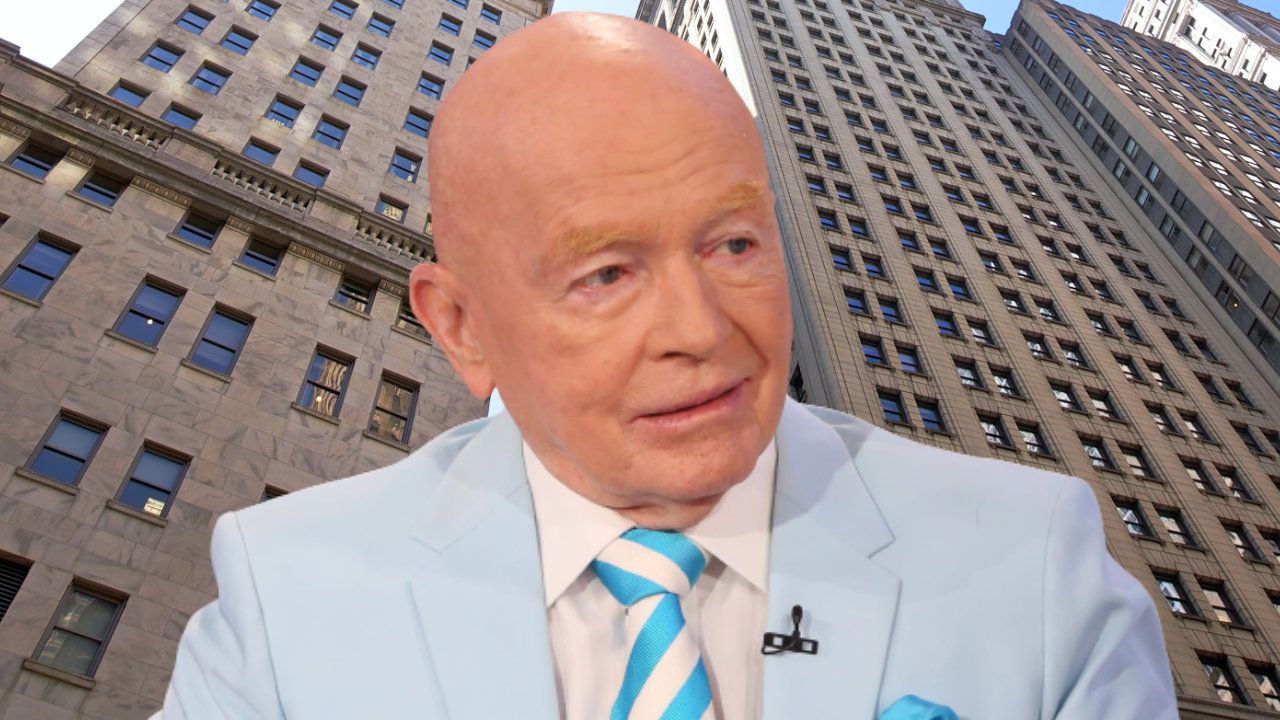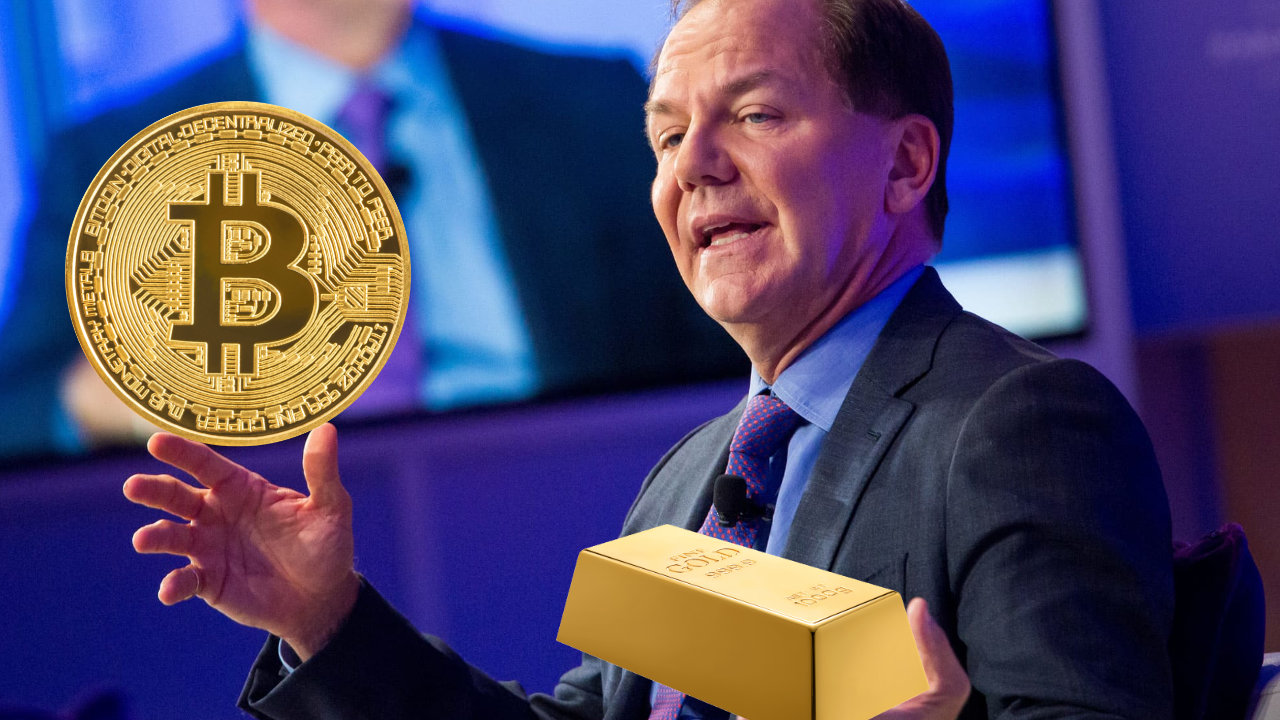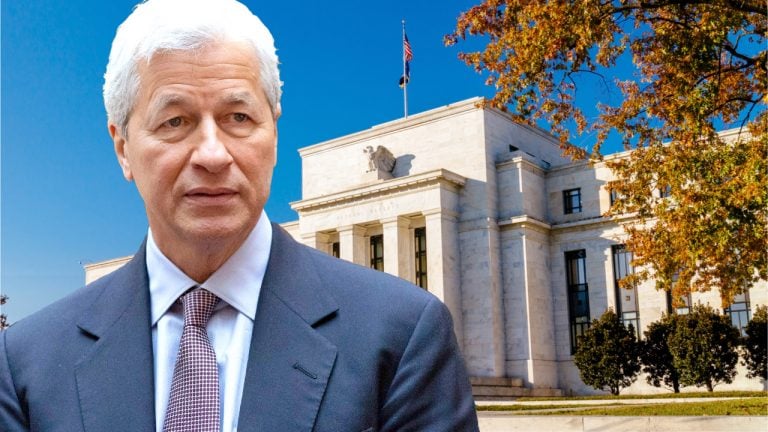
With a reported net worth of roughly $7.5 billion, the veteran hedge fund manager said he still has a "very minor allocation" of Bitcoin.
Veteran investor Paul Tudor Jones said he still has a “very minor allocation” to Bitcoin amid the price volatility, citing economic patterns since the 1970s in his reasons for hodling.
In an Oct. 10 interview on CNBC, Jones said he thought cryptocurrencies like Bitcoin BTC “will have value” at some point in the future higher than the current price of $19,236. The hedge fund manager with a reported net worth of roughly $7.5 billion said monetary policy in the 2020s could be focused on “debt dynamics country-by-country,” with fiscal retrenchment or higher-term premiums in bond markets and stock markets.
“I’ve still got a very minor allocation, I’ve always had a small allocation to [Bitcoin],” said Jones. “In a time when there's too much money — which is why we have inflation and too much fiscal spending — something like crypto, specifically Bitcoin and Ethereum, where there’s a finite amount of that, that will have value at some point."
"I've always had a small allocation of #Bitcoin, " says @ptj_official. "We're going to have to have fiscal retrenchment. In a time where there's too much money, something like #crypto, specifically #Bitcoin and #Ethereum, that will have value at some point." pic.twitter.com/9ZE8gQitpx
— Squawk Box (@SquawkCNBC) October 10, 2022
Jones did not specify the quantity of his “very minor” BTC allocation but said in May 2020 that the cryptocurrency represented between 1%–2% of his total assets. In June 2021, citing concerns about inflation and the United States Federal Reserve policy, he advocated for a 5% allocation to BTC, 5% to gold, 5% to cash and 5% to commodities.
Related: Crypto portfolios: How much of a stablecoin allocation is too much?
Following a meeting of the Federal Open Market Committee in May, Jones said it was going to be a “very, very negative situation” for stocks and bonds and the U.S. was entering "uncharted territory" with the Fed raising rates. Many know the veteran investor for shorting the stock market ahead of a market crash in 1987, which effectively tripled his wealth.

Hedge fund billionaire Paul Tudor Jones is warning of a steep financial test in advance of the Federal Reserve’s upcoming rate hike meeting on Wednesday. In a new interview with CNBC, Jones says the US economy is facing its biggest test since the 1970s and compares the challenges facing the Fed to an ocean-faring ship […]
The post Billionaire Paul Tudor Jones Warns of Economic Disaster, Says Hard Not To Be Crypto Bull Currently appeared first on The Daily Hodl.
 Mobius Capital Partners founder Mark Mobius says that cryptocurrency is not an investment, calling it “a means to speculate and have fun.” He prefers stocks and believes “the U.S. market is going to continue to prosper and continue to do well.” Mark Mobius Does Not See Crypto as an Investment Mark Mobius, the founder of […]
Mobius Capital Partners founder Mark Mobius says that cryptocurrency is not an investment, calling it “a means to speculate and have fun.” He prefers stocks and believes “the U.S. market is going to continue to prosper and continue to do well.” Mark Mobius Does Not See Crypto as an Investment Mark Mobius, the founder of […] Billionaire hedge fund manager Paul Tudor Jones says that bitcoin is currently “winning the race against gold.” He added that the cryptocurrency is his preferred inflation hedge over gold. Paul Tudor Jones Chooses Bitcoin Over Gold Paul Tudor Jones, the founder of asset management firm Tudor Investment Corp., talked about bitcoin being his preferred hedge […]
Billionaire hedge fund manager Paul Tudor Jones says that bitcoin is currently “winning the race against gold.” He added that the cryptocurrency is his preferred inflation hedge over gold. Paul Tudor Jones Chooses Bitcoin Over Gold Paul Tudor Jones, the founder of asset management firm Tudor Investment Corp., talked about bitcoin being his preferred hedge […]
The survey results coincide with U.S. inflation climbing to the highest levels since 1992.
Traditional hedge funds are willing to increase their exposure in Bitcoin and other cryptocurrency markets over the next five years, a new survey has found.
Intertrust Global — an international trust and corporate management company — polled the chief financial officers of 100 hedge funds globally about their intention to purchase crypto-assets. About 98% of them responded that they expect their hedge funds to invest 7.2% of their assets in cryptocurrencies by 2026.
The survey found that a 7.2% investment into the cryptocurrency sector would equal about $312 billion if replicated across the sector. Meanwhile, about 17% of the polled CFOs admitted that their hedge fund could have 10% of their assets allocated to cryptocurrencies like Bitcoin (BTC).
The results appeared as Bitcoin corrected by more than 50% after rallying from $3,858 in March 2020 to almost $65,000 in April 2021, leading to speculations that it would crash further due to overvaluation.
Nevertheless, the flagship cryptocurrency held through technical supports around $30,000 and, earlier this week, rallied back above $40,000.

A majority of Bitcoin's gains came on the back of anti-inflation narratives that became popular in the aftermath of the coronavirus pandemic-led March 2020's global market crash.
Global central banks responded with unprecedented monetary support, with the U.S. Federal Reserve launching a near-zero lending rate policy alongside a $120B monthly asset purchase program.
The central bank's decision crashed yields on U.S. government bonds to record lows. Meanwhile, liquidity injections into the economy, accelerated further by the White House-led trillions of dollars worth of stimulus aid, also pushed the dollar's value lower against its top rival fiat currencies.
Many investors turned to riskier safe-haven assets that benefited U.S. stocks, gold, silver, and Bitcoin. Out of all, Bitcoin delivered the best bull runs as the Fed's money-printing policies continued.
Many mainstream fund managers appeared at the forefront of Bitcoin's 2020 price boom. For example, billionaire investor Paul Tudor Jones — of hedge fund Tudor Investment Corporation — said last year that he holds small percentages of Bitcoin. Later, another legendary investor Stan Druckenmiller also revealed that he is invested in the benchmark cryptocurrency to offset inflation risk.
European hedge fund management company Brevan Howard, U.S. fund firms SkyBridge Capital, Fidelity Investments, and ARK Invest also turned into some of the biggest Bitcoin backers from the traditional finance sector.
Intertrust's survey also showed that all the surveyed executives in Europe, North America, and the U.K. have at least 1% exposure in Bitcoin and similar cryptocurrencies. It further noted that North American hedge funds would likely have an average exposure of 10.6% in cryptocurrencies than those in the U.K. and Europe that anticipated 6.8% exposure.
The Intertrust survey also came as inflation in the U.S. reached 5% in May for the first time since the year 1992, reported the U.S. Labor Department in its monthly Consumer Price Index (CPI) report.
Many analysts, including Randall Kroszner, a professor at the University of Chicago business school and a former Fed governor, noted that higher inflation would lead the Fed to withdraw its expansionary policies to some extent. The speculation over "tapering" also rose as the Federal Open Market Committee (FOMC) began its two-day meeting on Tuesday.
But so far, a majority of FOMC officials, including the Fed chair Jerome Powell, have treated the recent CPI spike as "transitory." ANZ economist Tom Kenny noted that the U.S. central bank would, therefore, keep its policies unchanged at least until it sees improvements in the labor data.
Meanwhile, Paul Tudor Jones said in his recent interview with CNBC, that he had increased his Bitcoin holdings from 1%-2% in 2020 to 5% after noticing the Fed's disapproval of recent inflation spikes. He noted:
"I like Bitcoin as a portfolio diversifier. Say 5% in gold, 5% in Bitcoin, 5% in cash, 5% in commodities at the point in time. I don’t know what I will do with the other 80%. I want to wait and see what the Fed will do."
 Investment bank JPMorgan Chase is stockpiling cash according to the company’s CEO Jamie Dimon. The investment banker doesn’t seem to believe inflation is “transitory” and he thinks there’s a “very good chance” inflation could stick around. JPMorgan Chase CEO: ‘I Do Expect to See Higher Rates and More Inflation’ At the end of April, Bitcoin.com […]
Investment bank JPMorgan Chase is stockpiling cash according to the company’s CEO Jamie Dimon. The investment banker doesn’t seem to believe inflation is “transitory” and he thinks there’s a “very good chance” inflation could stick around. JPMorgan Chase CEO: ‘I Do Expect to See Higher Rates and More Inflation’ At the end of April, Bitcoin.com […] Billionaire hedge fund manager Paul Tudor Jones says he likes bitcoin. Noting that he can trust math, the famed hedge fund manager said, “bitcoin has appealed to me because it’s a way for me to invest in certainty.” Jones also shared his investment strategies in response to the Fed’s policy. Paul Tudor Jones on Bitcoin, […]
Billionaire hedge fund manager Paul Tudor Jones says he likes bitcoin. Noting that he can trust math, the famed hedge fund manager said, “bitcoin has appealed to me because it’s a way for me to invest in certainty.” Jones also shared his investment strategies in response to the Fed’s policy. Paul Tudor Jones on Bitcoin, […]